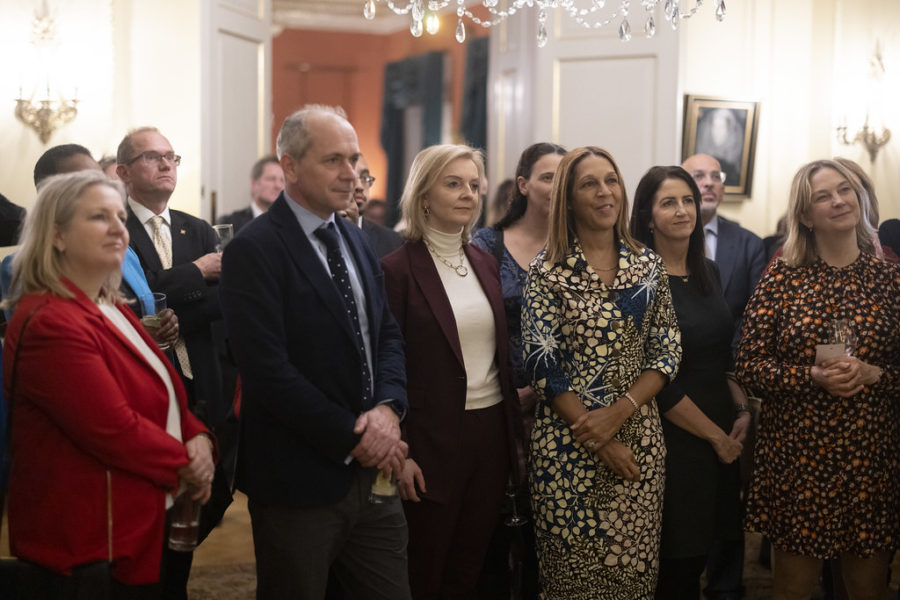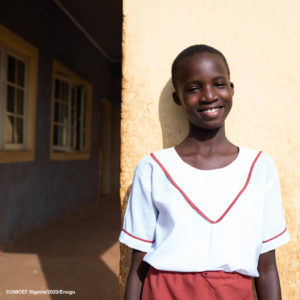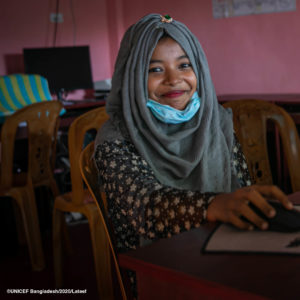8th March 2022
International Women’s Day and the UK government’s new partnership with the private sector

This International Women’s Day, I am very proud to share details of our new Girls’ Education Skills Partnership, launched by the Prime Minister last night.

Boris Johnson appointed me his Special Envoy for Girls’ Education just over a year ago. In that time, I have seen first-hand that investing in girls’ education truly is a game changer. A child of a mother who can read is 50% more likely to live beyond the age of 5, twice as likely to attend school themselves – and 50% more likely to be immunised. That is why I want to see every girl, everywhere, in school and learning.
We are facing an education crisis. This has been exacerbated by the pandemic, which has tragically become one of the biggest educational disruptors in our history. 1.6 billion children had their education disrupted at the peak of the pandemic in 2020 and many of these are girls who may never return to school, or even start school, lowering their chances of future employment and decent livelihoods.
Most children in lower- and middle-income countries have not learnt to read and write by the end of primary school. The UN estimates that low and lower-middle income countries could face an annual financing gap of $200 billion, as a result of COVID-19 impacts. Lower-income countries simply cannot fill that gap alone, but it cannot just be up to donor countries either. We must diversify education financing, including securing stronger contributions from the private sector.

This became a top priority of mine, early on in my role. It was clear that we needed to do things differently, and better, if we wanted to get girls’ education back on track after the pandemic.
To that end, I have spent the last year speaking to top businesses. I was heartened to hear about all the excellent initiatives on girls’ education being run by the private sector – but I saw that these organisations had been working in silos and missing out on opportunities to maximise their impact.
That is how our new partnership was born. Working closely with Generation Unlimited, UNICEF’s body focusing on youth employment, we have formed a new alliance of twelve special partners from the business world.
This new programme will bring together the resources and expertise of the private and public sector, to help both educate girls and to empower them economically.
We know there is a gap where young women around the world don’t have the skills needed to transition from school to the world of work and secure good quality jobs.
The programme will target 1 million adolescent girls and young women to provide them with skills and training to help them become more entrepreneurial and more employable in such key sectors as information technology and manufacturing, and other STEM fields.
We will make that vital link between girls’ education and women’s economic empowerment, for sustainable livelihoods and long-term prosperity.
I am so grateful to the 12 new partners for bringing their experience and funding to help make this happen. And I am delighted that the UK government will match-fund the contribution of each private sector partner up to the value of $1 million in this partnership.

Businesses, charities, schools and colleges will shortly be able to bid for funds from the programme – I’ll share more on how to bid when it’s live. This could include funding new skills training programmes, improving teaching or redesigning training to make it more relevant to business needs. Initially, bids will be encouraged for projects in Nigeria and Bangladesh, two countries where there are still significant barriers to girls’ education. The programme will then be expanded to other countries.
Funding from the programme will also help expand Generation Unlimited’s ‘Passport to Earning’ (P2E) platform. This digital skills platform will provide girls with free, certified education and skills training, which they can use to support future employment and entrepreneurship opportunities. UNICEF’s precursor to P2E was listed among Time Magazine’s 100 Best Inventions of 2021.
We would welcome more partners getting involved as the programme grows, so that we can have an even greater impact and together address the decline in pupils’ skills caused by pandemic-related school closures.
Up next
Next week I will travel to the US to attend the Commission for the Status of Women Conference, the UN’s annual summit on global gender equality.
This year, the priority theme is ‘achieving gender equality and the empowerment of all women and girls in the context of climate change’. As the Prime Minister’s Special Envoy for Girls’ Education, I will build on the UK’s COP26 Presidency by shining a light on the links between climate change and gender equality. I will continue raising the importance of girls’ education and the learning crisis in light of the climate crisis, and will join young leaders on 15 March to discuss what we all must do differently to protect girls and empower them to be agents of change.
I also look forward to my colleague, Minister Vicky Ford’s, panel discussion on ensuring a just transition to the green economy, for which skills such as those delivered through the new Girls’ Education Skills Partnership, will be essential.
This is encouraging progress after the last two years! Seeing the focus on young girls being addressed in a meaningful and measurable way!